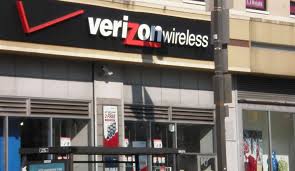Verizon is planning to invest more than $13 million to install 3.5 megawatts of new solar power systems at facilities in Carteret, Freehold and Piscataway, located in New Jersey.
Installation works will begin in next two months and completion is expected by the end of the year.
Verizon has launched its on-site green energy program in 2013 investing more than $34 million in New Jersey.
On completion, Verizon will operate around 7 MW of green energy systems in the state producing approx. 23 million KWh of green energy, enough to power nearly 2,000 homes annually.
These green-energy efforts are expected to offset more than 6,300 metric tons of carbon dioxide annually.
From network investments to philanthropic investments to investments in on-site green energy, Verizon is improving the quality of life in the communities we serve in New Jersey. Their commitment will position the state to compete and move forward economically, said, Leecia Eve, vice president, state government affairs, Verizon, New Jersey.

According to Solar Energy Industries Association, Verizon is on an attempt to become a pioneering solar power producer among all U.S. communications companies.
Based on its new solar energy expansion plans for 2014, it’s projected that Verizon will be among the top 20 of all companies nationwide in terms of the number of solar installations it operates, and one of the top 10 companies in the U.S. based on solar generating capacity, said, Rhone Resch, president, CEO, SEIA.
So far, Verizon has invested nearly $140 million in on-site green energy. Once new projects are completed, the company will be able to deploy upward of 25 MW of green energy in US.
Verizon has been focused on energy efficiency and introducing sustainable real estate practices. In 2005, Verizon invested in one of the largest fuel cell sites helping to power a call-switching center and office building in Garden City, New York.
Besides, it also uses 26 solar-assisted cell sites in remote areas of western United States to help power a portion of the nation’s largest wireless network.
In addition, Verizon has implemented better cooling efficiency and energy-consumption reduction measures in its data centers. In 2009, it developed new energy consumption standards on select telecom equipment, with a target of 20 percent greater efficiency.
All of its strategies aim the goal of cutting carbon intensity, flowing through the global wired and domestic wireless networks of the company to be reduced to half by 2020.
Moreover, the company is a sponsor of the upcoming New Jersey Sustainability Summit Sept. 18, which will focus on how small businesses can reduce their environmental impact and increase profits.
editor@greentechlead.com
